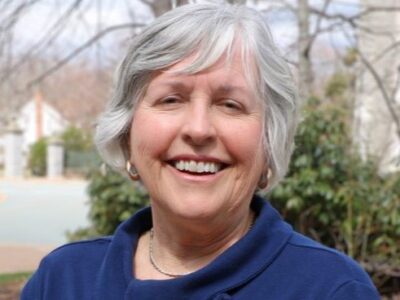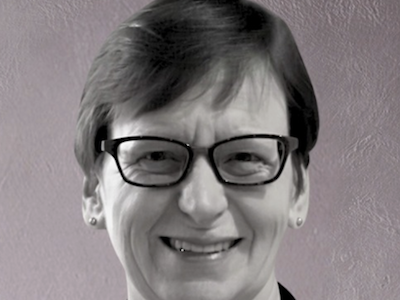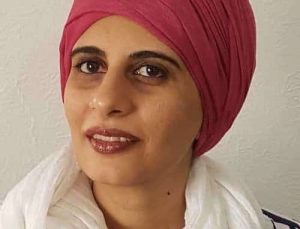 By Halima Mahomed, who’s an Independent Philanthropy Researcher and Consultant. Halima is also a Senior Philanthropy Consultant at TrustAfrica and an Associate Researcher at the Centre on African Philanthropy and Social Investment (CAPSI). Halima’s work focuses on strengthening the narrative, knowledge building and impact of philanthropy in Africa.
By Halima Mahomed, who’s an Independent Philanthropy Researcher and Consultant. Halima is also a Senior Philanthropy Consultant at TrustAfrica and an Associate Researcher at the Centre on African Philanthropy and Social Investment (CAPSI). Halima’s work focuses on strengthening the narrative, knowledge building and impact of philanthropy in Africa.
Four characteristics of African philanthropy
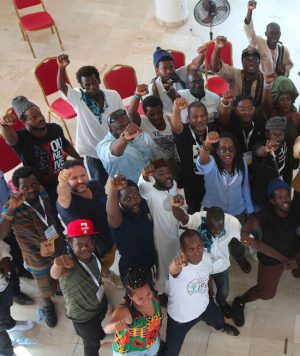 People tend to think of African philanthropy from one perspective — that people give to their neighbours and family, and that’s it. The reality is that it’s much broader and deeper. For instance, there’s everyday individual, communal and association-based giving, and there’s institutionalized giving, but the everyday giving – what I call embedded giving – is the least understood in global philanthropic discourse. While one can’t generalize too much about embedded giving practises on the African continent, because there’s a lot of nuance in how philanthropy is expressed, there are clusters of characteristics that are widespread.
People tend to think of African philanthropy from one perspective — that people give to their neighbours and family, and that’s it. The reality is that it’s much broader and deeper. For instance, there’s everyday individual, communal and association-based giving, and there’s institutionalized giving, but the everyday giving – what I call embedded giving – is the least understood in global philanthropic discourse. While one can’t generalize too much about embedded giving practises on the African continent, because there’s a lot of nuance in how philanthropy is expressed, there are clusters of characteristics that are widespread.
The first is that giving is rooted in notions of solidarity, mutuality and collective identity. It isn’t only transactional.
Without romanticizing Africa, I do think when we talk about African giving practices, they’re rooted in notions such as ‘ubuntu’ – an understanding that ‘my existence is intertwined with yours,’ and ‘my progress is intertwined with yours,’ and ‘my liberation is intertwined with yours.’ Collective identity and collective humanity are important, even more so in relation to contexts where external pressures are extractive and/or exploitative, both at a national level and international level if you look at global political-economic systems and legacies of colonialism and apartheid.
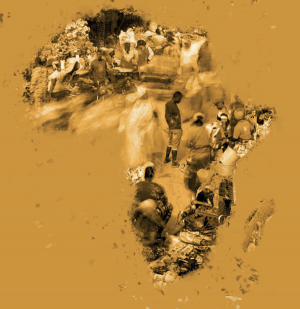 The second point is related to the dominant narrative about how and why philanthropy flows: the general take we’re told is: you live your life; you make your profits; and you give the excess you have. But in Africa, giving also means giving from a place of scarcity, not only excess. The majority of everyday giving comes from people who don’t have a lot to give, but they know there’s a brotherhood and sisterhood there, and that if they’re in dire straits, neighbours and friends will be there for them as well.
The second point is related to the dominant narrative about how and why philanthropy flows: the general take we’re told is: you live your life; you make your profits; and you give the excess you have. But in Africa, giving also means giving from a place of scarcity, not only excess. The majority of everyday giving comes from people who don’t have a lot to give, but they know there’s a brotherhood and sisterhood there, and that if they’re in dire straits, neighbours and friends will be there for them as well.
That leads to a third point: kinship. In Canada or the west, when you think of family, you think of the nuclear family. Here, family is also your extended family, but as important is the notion of kinship, which can be family, can be your neighbour’s father’s, can be the child on the next street who suffered some misfortune. Kinship is understood through links of family, community and association with others.
Last, it’s vital to emphasize that Africans do also give to institutions, to movements and to civic organizations, not just to their families and communities. These different types of giving happen simultaneously and through multi-directional flows.
Philanthropy in Africa doesn’t focus only on wealth
For approximately the last 20 years, there’s been a concerted effort in Africa to challenge the notion that philanthropy is an imported, western notion related to wealth.
Giving practices have a long history in Africa, but we don’t call it ‘philanthropy.’ We call it ‘ubuntu’ (which references collective humanity), ‘kujitolea’ (to volunteer or sacrifice), ‘teraanga,’ (hospitality), ‘harambee,’ (all pull together), ‘takafol’ (solidarity; mutual guarantee), and there are many other names.
And there’s been push back against the idea that Africa is a ‘begging bowl’ and that it’s a recipient of mainly western philanthropy.
The point is that we understand philanthropy to be significantly broader than institutionalized, top-down giving from high-net-worth sources, especially if you consider non-monetary giving, such as donated time, labour and social capital and asset sharing. We’ve been very deliberate in re-framing philanthropy to focus on what’s happening within our own sharing and giving systems on the continent. If we remove the high-net-worth, top-down, institutionalized framing, and look at everyday practises that people are engaged in, and analyze those practises in terms of giving and sharing, then we find some very different practises — and we find philanthropy that isn’t only transactional. In Africa, the act of giving itself holds immense value.
Change is happening globally as well
We also think that we need a new narrative of global philanthropy, not only a new one for African philanthropy, because we see similarities in other societies around the world – other communalistic societies in the global South, as well as other indigenous societies globally. For example, you can extend this to Indigenous communities in Canada or the US, or even to African-American or African diaspora communities, where you’ll see giving practices that, we would say, has a ‘resonance’ here in Africa. These exist in many places, they just don’t form part of the dominant narrative of philanthropy.
There’s no revolution in philanthropy (yet), but we’ve had change
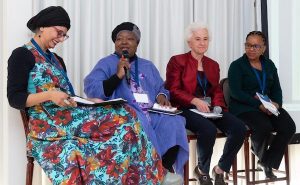 Change is iterative. Twenty years ago, there were no pan-African philanthropy conferences; this year alone, we’ve organized several for the next few months. When I used to go to global philanthropy conferences, there were very few of us from the continent present; today there’s a presence in numbers. Back then, our infrastructure was nascent and narrowly focused in terms of geography; today, we have pan-African institutions like TrustAfrica, the Centre on African Philanthropy and Social Investment, the Africa Philanthropy Network, and others. When I did my Masters, we had no programs, nor any lecturers experienced in philanthropy at my university; today, we have a cadre of Masters and PhD students from across the continent.
Change is iterative. Twenty years ago, there were no pan-African philanthropy conferences; this year alone, we’ve organized several for the next few months. When I used to go to global philanthropy conferences, there were very few of us from the continent present; today there’s a presence in numbers. Back then, our infrastructure was nascent and narrowly focused in terms of geography; today, we have pan-African institutions like TrustAfrica, the Centre on African Philanthropy and Social Investment, the Africa Philanthropy Network, and others. When I did my Masters, we had no programs, nor any lecturers experienced in philanthropy at my university; today, we have a cadre of Masters and PhD students from across the continent.
It’s not just that there are new institutions and spaces; there’s also a significant pushing of boundaries on how we understand what philanthropy is and what role it plays in society — and critical knowledge building on alternative narratives within which to understand these.
There’s the new Harambee-Ubuntu Pan-African and Feminist Philanthropies initiative, which is advancing a values-based vision of the philanthropy that Africa needs. There’s the recently launched Women in African Philanthropy program, which centres on the diversity and significance of women’s multidimensional philanthropic roles. And there’s a strong and growing African feminist philanthropy sector on the continent — and a lot of transformation stemming from that, as well as more spaces where new participatory models are being developed.
Still, there’s a lot to be done, because we’re pushing against entrenched narratives and erased histories, but we’re a long way from where we were 20 years ago. We’re defining our own narratives — and on our own terms.
For more about Halima Mahomed’s work and African philanthropy, please download her two recent papers produced under a TrustAfrica Fellowship: (1) Philanthropic Privilege & Constituency Agency, By Halima Mahomed, 2023; and (2) Our Giving, African Philanthropy & the Narrative Divides, By Halima Mahomed, 2023. Photos are courtesy of TrustAfrica and CAPSI. TrustAfrica can be found on LinkedIn, Twitter and Facebook.
Read the next story (from Kenya) in the African Philanthropy Series
Tuesday, June 4, 2024 in Africa Philanthropy Series, For homepage, News & Events
Share: Twitter, Facebook

